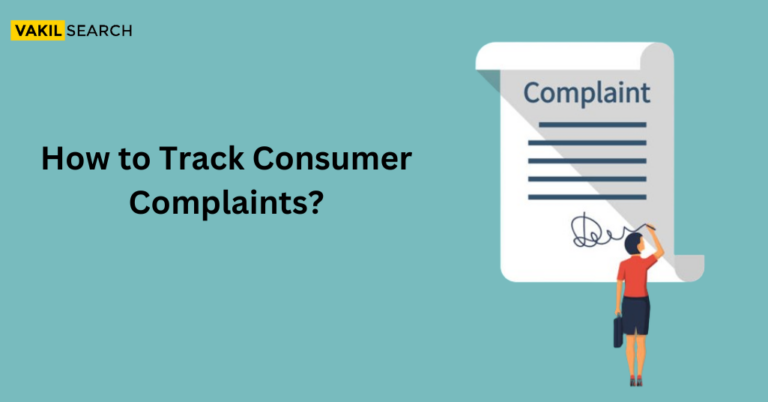The Consumer Protection Act, of 2019, is responsible for enforcing consumer rights in India. This act was introduced to replace the Consumer Protection Act of 1986. Read on to know about consumer protection laws.
One of India’s primary laws protecting customers is the (Consumer) Customer Protection Act. The Consumer Protection Amendment Act of 2002 was passed in 2002, amending the 1986-introduced law. With the help of Vakilsearch, you can write the vendor a legal notice if you feel misled by a bad product or a promise made by them. In this article, we will discuss everything about consumer protection laws.
The Objective of the Consumer Protection Act
The Consumer Protection Act’s main goals are to strengthen the consumer protection system
and create a robust process for resolving disputes between consumers. The Consumer Protection Act fights for the following rights:
- Prevent the marketing of products that pose a risk to human life or property;
- To protect the consumer from unfair business practices, provide information about the
- Size,
- Number,
- Potency,
- Price of the goods etc
- Whenever possible, guarantee to have access to a source of affordable goods; the interests of consumers will be heard at the proper forums and ensured of receiving due consideration;
- Consumer education; seeking redress against unethical business practices or shady consumer exploitation.
Who is Consumer?
Anyone who pays money for goods or services is considered a consumer under the Consumer Protection Act.
Also, the consumer only makes use of the products and services with the consent of the seller. The Act includes all goods and services, including those offered by the banking and e-commerce sectors. It also includes telecom, insurance, electricity, and transportation industries in both the public and private sectors.
How & When to Complain?
According to the Consumer Protection Act, a customer may file a written complaint if:
- Any dealer or service provider engaging in a restricted or unfair business activity;
- He purchased or agreed to purchase things that had one or more flaws;
- The services he has contracted for, used, or agreed to use have deficiencies in some way;
- The trader or service provider, as the case may be, has charged more than the price for the goods or services mentioned in the complaint:
- Fixed by or under any currently in effect law; reflected on the price list he displayed by or as required by any law in effect at the time; mutually agreed upon;
- Putting products on the market that, when used, pose a threat to people’s lives and safety.
- Providing services that, if used, pose a risk to the public’s safety and life.
Procedure to File Consumer Case
Consumers must submit any written complaints they may have regarding goods or services to a District Forum along with the required fee. Within 21 days of the complaint’s receipt, the District Forum has the option to accept or reject the claim.
On the other hand, the opposing party will receive a copy of the complaint and have 45 days to approve it. Consumers must submit any written complaints they may have regarding goods or services to a District Forum along with the required fee.
Within 21 days of the complaint’s receipt, the District Forum has the option to accept or reject the claim. On the other hand, the opposing party will receive a copy of the complaint and have 45 days to approve it.
Consumer Protection Act, 2019 Changes
As a result of the 2019 Consumer Protection Act’s passage, the following amendments have been made:
- Where the amount of the commodities, services, or products paid as consideration to the seller does not exceed ₹50 lakh,
- The District Commissions shall have the authority to examine complaints.
- When the price of the goods, services, or products paid as the seller’s consideration is greater than ₹50 lakh. But if it does not exceed ₹2 crore then state commissions shall have the authority to consider complaints.
- When the seller receives payment for goods, services, or products worth more than two crore rupees,
- To hear complaints, the National Commission shall have jurisdiction.
- The Act also mandates that all consumer dispute complaints must be resolved as quickly as possible. If the complaint does not require analysis or testing of the goods and services, the decision on it must be made within three months of the date the other party received legal notice. And it must be made within five months if such analysis or testing is necessary.
- Consumers can also submit complaints online thanks to the Consumer Protection Act of 2019. For consumers all over India to contact the appropriate consumer forums in the event of a dispute,
- The Central Government established the E-Daakhil Portal which offers a convenient, quick, and affordable facility.
- The Act specifies the legal parameters for direct sales and digital services.
- The Consumer Protection Act of 2019 establishes mechanisms for alternative dispute resolution.
- The Consumer Protection Act of 2019 includes provisions for product liability and unfair contracts in addition to three additional unfair trade practices.
However, the prior Act only included six classifications of unfair commercial practices. The Act of 2019 serves as the advisory body for the promotion and protection of consumer rights.
- Selection committees are not permitted under the Consumer Protection Act of 2019 because the Central Government is authorised to appoint the members.
Contact Vakilsearch for further details; their professionals will clear up any questions you may have.
The Indian Parliament therefore passed and put into effect the Consumer Protection Act, 2019 to include regulations for e-commerce because the digital era has made it possible for convenient payment mechanisms. It also provided a range of options, improved services, etc.
Conclusion
We hope that after reading this article, one has understood the importance of consumer protection laws.
This Act allows consumers to seek alternative dispute resolution mechanisms and mediation, allowing the parties to choose a quick and effective resolution of consumer disputes. The Act’s inclusion of e-complaints and e-consumers shows that some members of the legislature were forward-thinking.
The Act has added new concepts like “product liability” and “unfair contracts,” broadening the scope of protection for consumers’ rights. It also enables them to complain when those rights have been violated.
Also, Read:










